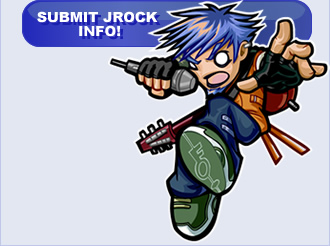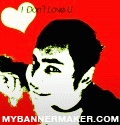i has heard j-rock and j-pop songs since yesterday..and i feel this all songs are interesting and enjoy it when we heard again and again..now i like also genre j-rock and j-pop songs..they have a great songs and they is same level with the others band outside there..which is mean they have best songs and identity from their songs..lets have a fun with their songs..listen it.. :)
Japanese rock is a form of popular music, often abbreviated to "J-Rock" in much the same way that "J-Pop" is used as an abbreviation of Japanese Pop. J-Rock is one of the most popular forms of music in Japan.
The Japanese progressive rock scene included Kenso and KoenjiHyakkei.
(Maximum The Hormone)
Psychedelic rock was invented in the 1960s by American and British counterculture figures. Arriving in Japan, psychedelic rock took on a different flavor. Previously known for the drug intake of its performers leaving an impact on the hazy, drugged-out music, J-Rock performers tended to be drug-free, or even adamantly anti-drug (for example, Kosugi Takehisa, Haino Keiji, Nanjo Asahito).
Psychedelic rock first appeared in Japan in the mid to late 1960s. A few Group Sounds bands imitated their Anglo heros, including The Golden Cups, The Mops, The Dynamites and Jacks, whose "Karappo No Sekai" and "Marianne" were two of the first psychedelic recordings from the country.
Like in the UK and US, the psychedelic rock scene was linked to a political move
ment involving young, spirited students. An economic boom brought many young people to universities, where radical politics abounded. Central to this movement, arising from the late 60s Kyoto student revolts, was the band Les Rallizes Denudes and the Taj Mahal Travellers, followed by Lost Aaraaff.
In the 1970s, singer-songwriters like Kazuki Tomokawa and Kan Mikami became popular. As in the US and UK, Japanese rock spawned a folk-rock scene, there led by Magical Power Mako. At the same time, radical progressive rock was evolving, with distinctly Japanese bands like After Dinner and YB02.
From the late 1980s a fringe movement in Japanese alternative rock took the form of noise rock, a sound popularised by bands such as The Boredoms.
Into the 1990s, indie rock and kitschy bands like Shonen Knife, Cibo Matto, Fantas
tic Plastic Machine and Pizzicato Five found mainstream audiences.
Since the success of X Japan and other Visual Kei bands in the 90's; "Visual Kei" is often focused upon in the West as a uniquely Japanese part of the Rock music scene. Strictly speaking, however, "Visual Kei" is not defined by it's sound (which may or may not be "rock" music) but by the appearance of the bands.
sources by: IQ
(Scandal band)





































2 Romen:
slm ziarah kemgkawan...:D
wsalam... :)
Post a Comment